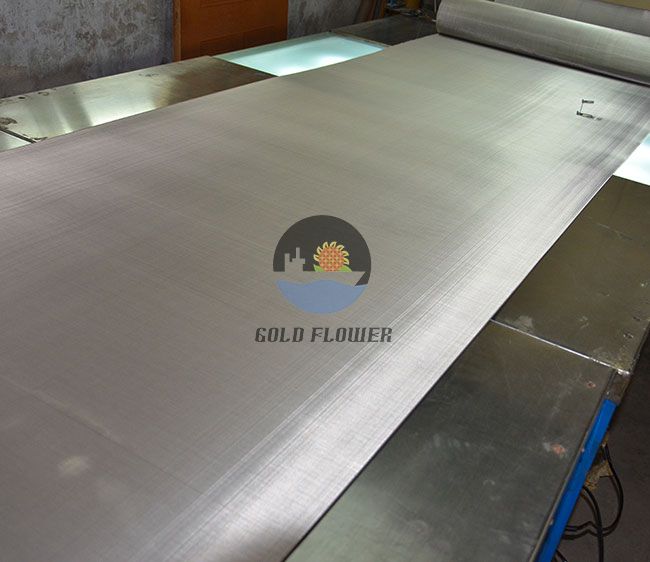Aug . 05, 2024 23:42 Back to list
Explore the Best Options for Purchasing Woven Mesh Fabric for Your Projects
The Rise of SS Woven Mesh A Comprehensive Guide to Buying the Best
In the world of industrial materials, stainless steel (SS) woven mesh has become increasingly popular due to its unique properties and versatile applications. This guide aims to provide valuable insights into the factors to consider when purchasing SS woven mesh, helping buyers make informed decisions to meet their specific needs.
Understanding SS Woven Mesh
Stainless steel woven mesh is a material consisting of interlaced stainless steel wires. The weaving process allows for various mesh sizes and patterns, providing a durable, corrosion-resistant solution suitable for diverse settings. Common applications include filtration systems, architectural designs, food processing, and pharmaceutical industries, among many others. The choice of stainless steel as a base material ensures that the mesh can withstand harsh environmental conditions while maintaining structural integrity.
Key Benefits of SS Woven Mesh
1. Durability One of the main advantages of stainless steel woven mesh is its unparalleled durability. It can withstand high pressure and extreme temperatures, making it suitable for challenging environments.
2. Corrosion Resistance Stainless steel is inherently resistant to rust and corrosion, ensuring a longer lifespan for the mesh. This property is particularly essential for applications in humid or chemically aggressive environments.
3. Customizability SS woven mesh is available in various mesh sizes, patterns, and wire thicknesses, allowing buyers to customize their orders to meet specific requirements.
4. Aesthetic Appeal Beyond functionality, stainless steel woven mesh can add a modern, sleek aesthetic to architectural projects, making it a popular choice among designers and architects.
buy ss woven mesh

Factors to Consider When Buying SS Woven Mesh
When looking to purchase SS woven mesh, there are several factors to consider to ensure that you select the best option for your needs
1. Material Grade Stainless steel comes in several grades, with 304 and 316 being the most common for woven mesh. Grade 304 is excellent for most applications, while 316 offers superior corrosion resistance in highly acidic or saline environments. Consider the environment in which the mesh will be used to choose the appropriate grade.
2. Mesh Size and Opening The mesh size and opening are critical to the performance of the woven mesh. Smaller openings typically provide better filtration but may restrict airflow or fluid movement. Conversely, larger openings allow for increased flow but may not provide adequate filtration. Assess your specific needs to determine the right balance.
3. Wire Diameter The thickness of the wire used in the mesh affects its strength and flexibility. Thicker wires provide added strength and durability, while thinner wires may offer flexibility and lighter weight. Choose the appropriate wire diameter based on your application.
4. Weaving Pattern Different weaving patterns, such as plain weave, twill weave, or dutch weave, can impact the mesh's performance and appearance. Each pattern comes with its own set of advantages and is suited for various uses.
5. Supplier Reputation Finally, it's essential to source your SS woven mesh from a reputable supplier. Look for suppliers with a solid track record, positive customer reviews, and certifications to ensure that you receive high-quality materials.
Conclusion
SS woven mesh is an invaluable material in various industries, offering exceptional durability, corrosion resistance, and aesthetic appeal. By considering key factors such as material grade, mesh size, wire diameter, weaving pattern, and supplier reputation, buyers can make informed decisions when purchasing this versatile product. As industries continue to evolve, the demand for high-quality SS woven mesh is set to rise, making it an excellent investment for both current and future applications.
share
-
High-Quality Screen Stone for Modern Stone Screen Walls Elegant Facade Solutions
NewsJun.10,2025
-
High Quality Wire Filter – Cheap Stainless Steel Filter Wire Mesh Cloth & Wire Mesh Filter Solutions
NewsJun.10,2025
-
5 Micron Water Filter Cartridge - Premium Sediment Filtration, Universal Fit
NewsJun.10,2025
-
High Quality CE-Certified Gabion Boxes with OEM Options
NewsJun.10,2025
-
20x20x2 Air Filter High-Efficiency Dust Filtration for Clean Air
NewsJun.10,2025
-
Decorative Metal Mesh for Radiator Covers Custom Durable Mesh Panels
NewsJun.10,2025

